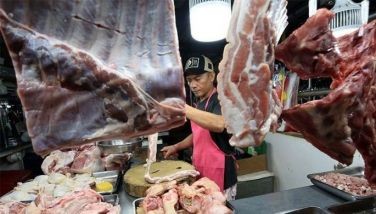Phl investments in New Zealand

Very few of our businessmen/entrepreneurs have ventured outside the comfort zone of ASEAN and China. During my visit to New Zealand I was surprised to learn that there are others who have invested in other shores.
At the dinner hosted by Prime Minister John Key in honor of the honorary advisers of the Asia New Zealand Foundation last month, I was told that Universal Robina Corp. of the Gokongwei Group had just purchased Griffin’s Foods for $608 million. Final approval is of course required from the New Zealand government for any sale exceeding NZ$100 million to a foreign entity. I was told by our Honorary Consul General Paulo Garcia that Griffin’s was established in Nelson, South Island in 1864 and subsequently bought by Nabisco in 1962, and then sold to Danone in 1990. Private equity firm Pacific Equity Partners (Sydney) bought Griffins from Danone in 2006. It is considered an iconic brand by my New Zealand friends. Lance Gokongwei informed me that Griffin’s products are a perfect fit in their offerings for export to the Southeast Asian markets and China.
In 2009, Henry Studhome of Prime Foods and Jonathan Dee, president of Alliance Select Foods International (located in General Santos) entered into a partnership which led to the establishment of a joint venture company, Big Glory Bay Salmon which has a state of the art processing plant in General Santos employing 200 Filipinos. The joint venture imports salmon from New Zealand and processes them into smoked salmon for export to regional and international markets. Interestingly, the plant in General Santos is three times the capacity of the New Zealand plant. Prime Foods has established itself as one of the dominant smoked salmon providers in the domestic market. One of its products, “Prime Smoke” is stocked in over 300 New Zealand and 600 Australian supermarkets as well as in markets in the Middle East, Southeast Asia, Japan, French Polynesia and the United States.
On Oct. 22, 2012, Alliance signed an agreement with Duncan Bates for the acquisition of an 80 percent stake in Akaroa Salmon NZ Ltd., a salmon marine farmer and processor of fresh and smoked salmon. The MOU took place during President Aquino’s state visit to New Zealand.
Then there is the joint takeover bid by Hong Kong’s First Pacific and Singapore’s Wilmar International for Goodman Fielder which has been accepted by the board of the Australian food company on May 16, 2014. Hong Kong based First Pacific led by Manuel V. Pangilinan has partnered with Wilmar International Ltd., Asia’s leading agribusiness group. Goodman Fielder is the biggest supplier of a wide range of food products. Goodman Fielder New Zealand Limited is a wholly-owned subsidiary of the mother company in Australia. The New Zealand subsidiary is the largest consumer food supplier in New Zealand, with sales from continuing operations of approximately NZ$1 billion. It operates 14 manufacturing facilities and employs 2,000 people across the nation. As in Griffin’s case, government approval is needed on the assumption that the purchase will exceed NZ$100 million.
The attractiveness of New Zealand must be business friendly in other ways. As previously mentioned, the country is rated 1st in the corruption perception index by Transparency International, 3rd in ease of doing business rated by the World Bank, 5th in the index of economic freedom rated by the Heritage Foundation and 21st Highest GDP per capita in the world. Potential Filipino investors should take note of these impressive statistics for a small nation of 4 million people.
Labor and immigration policy
It should also be noted that 12 percent of the country is Asian and growing, attributable to what I consider an enlightened and realistic immigration policy. Filipinos visiting this country will be surprised about its unique attributes and the diversity of its ethnic composition. My recent column described the surprising number of Filipinos who have migrated to New Zealand (over 40,000). Today more than 100 Filipino families arrive every month in the city of Auckland.
Not everyone can apply for immigration. But depending on the nation’s needs, New Zealand Immigration publicly lists who may apply. Recently, New Zealand Ambassador Reuben Levermore informed me that there has been a steady increase of Filipino temporary workers necessitated by the Christchurch rebuild since the earthquake. What I found particularly impressive was the joint announcement of the Ministries of Labor and Immigration to address the issues of migrant exploitation including an increase in the number of labor inspectors and immigration officers (costing an additional NZ$7 million) in the Christchurch area. That is a clear manifestation of the sensitivity of the authorities. The Ambassador further said that migrant workers have the same employment rights and protection as all other workers in New Zealand.
Equally praiseworthy, the New Zealand Ministry of Business Innovation and Employment proposed a cooperative activity to help ensure that the flow of skilled workers to New Zealand is responsibly managed by both the Philippine and New Zealand governments. It has since been confirmed by our Department of Labor that there has been an on going dialogue with OWWA on a project to formally train 20 OWWA and DOLE staff who will be the trainers responsible for delivering pre-departure seminar training to Filipinos who are about to travel to New Zealand. Today, Aug. 8 the embassy will conduct “train the trainer” sessions with their counterparts.
The embassy also expressed eagerness to develop specific arrangements that will lower costs and improve transparency in the recruitment and engagement of Filipino migrant workers. Translation: It is a sincere attempt to develop best practices to protect the potential laborer from being milked by recruiters locally and in New Zealand. On the Philippine side, our Ambassador Virginia Benavidez (best described as one where grass never grows under her feet) also shared with me the steps currently being undertaken in close coordination with the Philippine Overseas Employment Administration (POEA) to address the issues and concerns of Filipino workers and resolve problems related to their recruitment and deployment to New Zealand. The implementation of country specific cooperation projects under the 2008 Philippines-New Zealand Memorandum of Agreement on Labor Cooperation is underway.
During my time in the Foreign Service, I have seen the positive and negative aspects of policies towards our OFWs. No policy is perfect, but I would suggest that New Zealand is a showcase in this regard. Other nations in the world employing our countrymen may wish to consider using the New Zealand model as their template.
- Latest
- Trending































